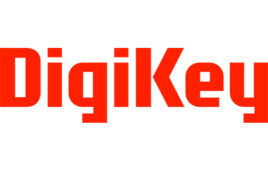Leland Teschler
Executive Editor
 Here is a dilemma that will probably sound familiar to engineers who tend to generate a lot of ideas: You have a concept for a new product that could greatly boost the company fortunes. But it will take time and resources to make it happen.
Here is a dilemma that will probably sound familiar to engineers who tend to generate a lot of ideas: You have a concept for a new product that could greatly boost the company fortunes. But it will take time and resources to make it happen.
And so nothing happens. You find it’s impossible to get upper management interested in pursuing what seems to be a lucrative area, despite the chance of a big payoff.
This situation is more likely to befall engineers at public companies, those that issue stock, rather than companies run by private owners. To understand why, consider a hypothetical question posed to a few hundred chief financial officers (CFOs) in a study run by a group of National Bureau of Economic Research (NBER) economists. The researchers asked whether the CFOs would be willing to invest in projects that would make their company miss its next quarterly earnings target, even if the longer-term results would improve. A little less than 60% of the CFOs were willing to risk even a 5% shortfall in earnings to boost the firm’s long-term prospects. Only about half the CFOs were willing to invest if doing so meant missing a quarterly earnings figure by 30%.
The reason for risk-averse behavior among company managers is easy to understand: In most public companies, top managers get a big portion of their compensation in company stock or stock options. So they are loath to do anything that hurts the stock price, even temporarily.
Risk-averse behavior means public companies probably invest in fewer potentially lucrative projects, and that engineers there with big ideas are probably more frustrated. A recent NBER study seems to back up this idea. Last year, economists from NYU and Harvard looked at investment rates among public and private firms that were of similar sizes, ages, and in similar industries. They found that private firms invested (or, basically, put money back into the business) at a rate almost most twice as high as comparable public firms. Moreover, private firms that issued stock and went public also tended to reduce their investment rates, the economists found.
There have been a lot of theories about reasons for this disparity. One who thinks he’s figured it out is James Montier, an economist at GMO LLC, an investment management firm. He claims a key aspect of the problem is top managers who earn obscenely high pay checks for what amounts to temporary work. The average tenure of top executives has fallen sharply since the 1970s when the average CEO held that position for almost 12 years. More recently the average tenure of CEOs has dropped to just six years. “It is little wonder that CEOs may be incentivized to extract maximum rent in the minimum time possible given the shrinkage of their time horizons,” says Montier.
Lest readers quibble with my characterization of CEO pay as “obscenely high,” consider that the ratio of CEO pay to that of minimum wage workers increased from 20:1 in 1965 to 354:1 today, thanks to CEO compensation that includes salary, bonus, restricted stock grants, options exercised, and long-term incentive payouts. Interestingly, researchers Sorapop Kiatpongsan in Thailand and Michael I. Norton of Harvard Business School recently asked ordinary citizens to estimate how much more CEOs made than workers earning low pay. The average person missed the real ratio by a mile, putting it at 30:1. But they thought even 30:1 was too much. The average responder thought a “fair” ratio was about 7:1.
If companies aren’t putting money into new projects, where are all the profits going? Public companies mostly put it into buying back stock, says Montier, which boosts the fortunes of company executives with stock options.
Not only does scrimping on investment tend to help the short-timers running companies, it also has contributed to the growing inequality of wealth in the U.S. Montier points out that the big winners of this phenomenon are people who own stocks. The wealthiest 1% of Americans own nearly 40% of the stock market, and the top 10% own 80%.
So next time you have an innovative idea that is shot down, cheer up. The rain on your parade has helped ensure your CEO will be able to exercise stock options. Have a nice day.
Filed Under: Commentaries • insights • Technical thinking





Tell Us What You Think!